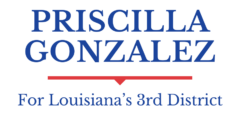The Support for Patients and Communities Reauthorization Act (H.R. 4531) seeks to sustain and expand efforts to combat the opioid crisis in the United States. Key elements of the bill include:
- Permanent Medicaid Coverage: It permanently extends Medicaid coverage for medication-assisted treatment (MAT) for individuals with substance use disorders (SUD).
- Over-the-Counter Opioid Reversal Medications: It increases access to opioid reversal medications like naloxone, making them more widely available over the counter.
- Support for Foster Care Youth: It ensures coverage of SUD treatment services for foster care youth.
- Enhanced Prescription Drug Monitoring: It provides enhanced funding for state-level prescription drug monitoring programs to help track and control the distribution of prescription drugs.
- Workforce Training and Long-term Recovery Services: It supports workforce training for SUD treatment and provides access to long-term recovery services (Congress.gov | Library of Congress) (American Hospital Association) (U.S. Congressman Brett Guthrie).
This reauthorization is part of ongoing attempts to reduce the opioid epidemic, which has caused a substantial number of overdose deaths, especially owing to synthetic opioids like fentanyl (U.S. Congressman Brett Guthrie).
Voting against H.R. 4531, the Support for Patients and Communities Reauthorization Act, might be considered foolish for a variety of reasons.
- According to U.S. Congressman Brett Guthrie, the opioid epidemic has resulted in over 200,000 deaths from overdoses, primarily caused by synthetic opioids like fentanyl. The measure intends to maintain critical programs that provide treatment and recovery assistance to people suffering from substance use disorders (SUD). Voting against this bill may be viewed as a refusal to support legislation that addresses this vital issue.
- Access to therapy: One of the bill’s key components is the permanent continuation of Medicaid coverage for medication-assisted therapy (MAT) for those with substance use disorders. This is critical for many low-income people who rely on Medicaid for life-saving care. Congressman Higgins’ vote against providing medical help to vulnerable populations may be interpreted as a denial of care (Congress.gov | Library of Congress).
- Preventive Measures and Monitoring: The bill also includes provisions to promote access to opioid reversal treatments and strengthen state prescription drug monitoring systems. These procedures are critical for preventing overdoses and monitoring the delivery of prescription medications to prevent abuse. A no vote may undermine efforts to prevent future addiction and overdose deaths (American Hospital Association, Congress.gov | Library of Congress).
- Support for At-Risk Groups: The law covers SUD treatment services for foster care youth, a particularly vulnerable population. Voting against this measure may be perceived as disregarding the needs of foster children who require specialized support to overcome addiction (Congress.gov | Library of Congress).
- The opioid crisis has had a huge economic impact, including increased healthcare expenditures, lost productivity, and law enforcement spending. Supporting comprehensive treatment and preventative initiatives can help to alleviate these economic burdens. Voting against the bill could be seen as disregarding the economic consequences of the opioid epidemic on towns and the nation (American Hospital Association).
By voting against H.R. 4531, Congressman Clay Higgins may be perceived as ignoring the urgent needs of people suffering from substance use disorders and failing to support comprehensive steps that could lessen the destructive impacts of the opioid crisis on both public health and the economy.
